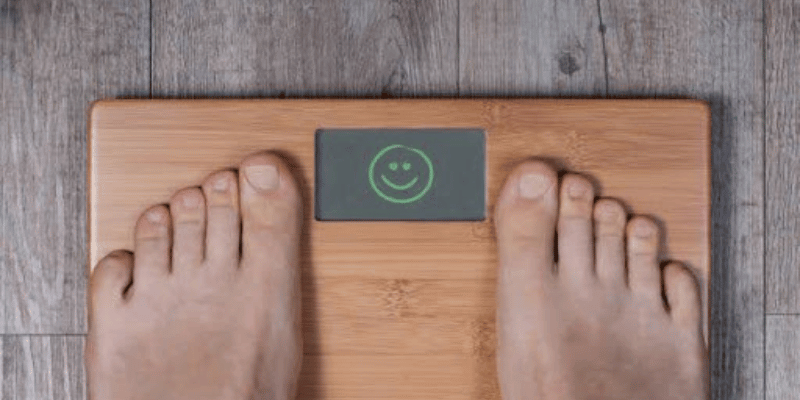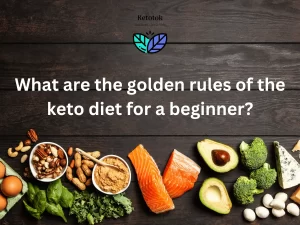Everyone today has a craze for looking fit and appealing and thus diet proves to be a savior in such cases. However, the question that arises here is keto versus intermittent fasting. Which is the best? Well, it is not as simple as picking up one from the two randomly, but, the weight loss method is very dependent on what would suit your body.
People suffering from some critical disease and type 2 diabetes should also consult their doctors before opting for any such weight-loss techniques.
Read Also: Unlocking Ketosis: Can a 48-Hour Fast Do the Trick?
1. Both Keto and IF can cause weight loss through different methods.

- Keto Works by Inducing Ketosis and Burning Fat
The basis of a keto diet is breaking down the fat in your body, which happens due to the absence of carbohydrates, and in turn, helps you lose weight. The ketogenic diet is nothing more than a low-carb diet. When there is a lack of carbohydrates, your body uses fat to generate energy for daily activities.
Ketone is formed in the body when the liver breaks down body fat to produce energy. This metabolic process is called ketosis.
- IF uses Time-Restricted Eating to Boost Metabolism
The other very common way of body weight management is the intermittent fasting diet.
An intermittent diet works on the principle of avoiding unnecessary binging on temporary food items. It involves fasting, which can be an alternative day, or restricting the eating pattern to a particular time of the day and thus boosting metabolism.
It consists of the frequency of food to be important and also, at what time of the day it is consumed, which plays an important role in the diet plan. So, those who are trying to lose weight can consult their dietician or doctor and opt for intermittent fasting under expert supervision.
- Keto and Intermittent Fasting both help in switching your body to a Fat-Burning State.

Keto versus intermittent fasting is a never-ending topic. However, a comparison cannot be made between the two as both have their benefits and may or may not suit everybody.
On one hand, where the keto diet uses fat as a fuel source for the body, intermittent fasting helps you lose weight with a fasting schedule. Fasting triggers quick weight loss due to a restrictive diet.
Thus, intermittent fasting and the ketogenic diet both in a way help in weight control.
2. Key Differences Between the Ketogenic Diet and Intermittent Fasting
- Keto Restricts Carbs, IF restricts when you eat
The basic difference between keto and intermittent fasting is that keto focuses on consuming the fat built in the body by reducing the carbohydrate intake to as minimum as 50 grams a day, whereas intermittent fasting aims at the time of the day when the food is consumed.
Although both weight management techniques help lose weight of body fat, the path to achieving the goal is poles apart.
- Keto may be more difficult long-term, IF requires planning.
Keto might be very common, but it is not everyone’s cup of tea.
A typical Keto diet involves cutting carbs from your diet to a minimum and motivates the generation of ketone which is due to the body reacting to using fat as a fuel to work, called a state of ketosis. It is not easy for everyone to handle it in the long term.
Intermittent fasting has a normal diet but the time of consumption or periods of fasting may vary. Some may even fast for 16 hours and then have a meal, while some follow a fasting time of 12 hours but, here, it requires a lot of planning to go on IF as not everyone’s body will give a positive reaction to intermittent fasting for weight loss.
Thus, both are to be taken seriously and keto, for the short term, goes well.
- Keto Causes Ketosis. IF activates Metabolic Benefits

When following a Ketogenic Diet, the body goes into a state of ketosis, when carbohydrate is consumed in a reduced quantity, decreasing the glucose level in the body and thus body fat is broken to generate energy.
Now, coming to intermittent fasting, this has already been [proven that intermittent fasting is good for one’s Metabolism. Metabolism, in simple terms, can be explained as the extraction of energy from food by breaking it down chemically.
When it comes to weight loss, intermittent fasting is quite beneficial and has additional benefits and helps one better their lifestyle.
3. Tips for Combining the Benefits of Keto and Intermittent Fasting
- Start with a 14-hour Fasting Window
Keto dieters, once they get accustomed to a ketogenic diet, can start overnight fasting or take up a 14-hour fast schedule. Otherwise, this can be taken up as alternate-day fasting as well. This is one way to adjust to intermittent fasting on keto.
Usually, a 12 -14 hour time period is easier for fasting as scientifically proven, and the body gets used to it easily. Thus, this helps step into an intermittent fasting plan smoothly along with the Keto plan.
Thus, it is always suggested to go with Keto and slowly start with IF. The reason is, that keto helps in decreasing the sense of hunger by generating ketones and thus makes a way for fasting.
- Adjust Meal timing Based on your routine and hunger
The other way to combine intermittent fasting with keto is to make healthy adjustments to your meal timing to which your body can react positively.
Fasting has been used to cut the unnecessary intake that people munch on without a need. So, the principle we can follow here is, the intake should be according to your keto plan and the timing or the periods of fasting will be taken care of while having your meal.
Therefore, your keto diet’s frequency and timing will depend upon your intermittent fasting plan, be it a 12 or 16 hour periodic fasting.
- Drink Water and supplement Electrolytes during the fast

The idea behind keeping yourself hydrated as much as you can is that when we fast the essential electrolytes and flushed out from the body in the form of sweat and thus to regain those and stay healthy, it is important to drink enough water.
Fasting helps you in quick weight loss and thus it becomes very crucial to keep yourself hydrated. Water weight should be maintained and the electrolytes in the body need to be kept a check. If not, lack of hydration and essential minerals may also cause headaches or fatigue and can worsen your condition.
Therefore, water intake is as important as a balanced diet, rich in protein and low in carbs.
Read Also: Keto Electrolyte Drink Recipe
4. The possible health benefits of a keto intermittent fasting diet
It is no new fact that combining keto and intermittent fasting helps your body reach the state of ketosis sooner compared to going with keto alone. This is one of the best advantages when the two of these diets are combined.
As per research, it has been proven that the glucose utilization in the body gets transformed to ketone utilization when you fast for around 12 to 36 hours or so. Thus, it can be concluded that combining keto and intermittent fasting provides better results.
Based on another study, it was proved that whenever fasting is done and carbohydrate is consumed in large amounts it can cause damage to the brain like memory issues and so on, which might be due to fluctuating body glucose levels.
Thus, it is always recommended to be on a low-carb diet whenever fasting is preferred, which in turn helps in weight management.
5. Sample Keto Intermittent fasting meal plan
- Morning – Black Coffee, Electrolyte Water
Having a zero-calorie drink, usually in the morning hours, is really good when you are fasting. It balances the effects of fasting, like helping to maintain the electrolyte balance in the body which gets drained out in terms of urine and sweat.
Fasting and the keto diet requires mineral balance and hydration. Thus, one drink in the morning helps.
- Afternoon- Keto Lunch at 2 pm
A keto lunch will be nothing new, but you have to keep in mind whatever is being eaten should be up to or less than 50 grams of total carbs each day.
Keto is followed by a high-fat and protein diet with fewer carbs. It is designed in such a way that the body automatically consumes the stored fat.
- Evening – Keto dinner before 8 pm
While you are on intermittent fasting, you will be fasting mostly in the nighttime as intermittent fasting restricts you to eating at least 12 hours a day, which can go up to 16 also.
IF restricts people from eating for a particular period of the day, whereas keto restricts what should be eaten. The last meal should be around or before 8 pm, when it is a keto followed by intermittent fasting, after this, you should avoid eating anything.
6. Who should try an intermittent fasting keto approach?

The Keto and intermittent fasting work wonders but only when followed correctly and when it suits your body. Once you have been on a ketosis diet for more than two to three weeks, you can adjust your routine following an intermittent fasting plan.
Following both keto and intermittent fasting is not necessary but if done, there isn’t any problem However, it is the keto diet that should be opted for first and once you are in the state of ketosis you might start with IF.
Based on the fasting periods, there are several types of intermittent fasting. One of these can be followed as guided by the expert.
It is also noticed that people with type 2 diabetes see a positive change in their health when a full-fledged plan is prepared for fasting for them to keep in mind the condition. However, breastfeeding mothers and teenagers should restrict themselves from taking up these diets.
Though fasting has been used for ages as a part of traditional belief, it is also to keep oneself healthy and maintain weight or body fat. In the modern era, it has been correlated more to science than to tradition and thus needs to be consulted by experts.
7. Keto diet or IF- My take
Firstly, it should never be opted following the mob mentality but a weight loss plan may be thoroughly studied and should get it reviewed by your doctor and dietician or other experts in the field as they may help you in knowing which technique would suit you better also if you have any undergoing health condition.
Keto versus intermittent fasting has been a great debate. There are other similar diets for weight loss in the same league, one of which is the Atkins diet. Thus, you have plenty of options to explore.
However, keto should never be taken lightly and followed with a compromising attitude as it may lead to unpleasant side effects.
FAQ’s
- Will I be able to reach ketosis with a 16-hour fast?
The body enters the state of ketosis after following a keto diet for at least one week without cheating. If any meal goes against the keto diet, you will have to start from the beginning.
Thus, the answer is mostly no. The liver breaks the body fat to pull out energy, which is called ketosis and this takes a good amount of time. So, 16 hours is obviously not enough.
This also depends on several factors like carb intake, your age, level of stress, and so on.
- Does intermittent fasting really put you in Ketosis?
Intermittent fasting can put you into ketosis faster if the carb intake is low as compared to the keto diet. Whereas, if you were on high carbs before and then started with keto dieting, this is a scenario when it takes a longer time to reach ketosis.
Having a keto-friendly meal is very good for weight loss and when it gets combined with fasting is does magic. This is the best diet and if followed by fasting five days a week, it can do wonders.
- What is the downside of keto and intermittent fasting?
It can be really harmful for diabetes patients as the glucose level may drop due to fasting and consuming a low-carb diet. So, even a silly mistake would be life-threatening if not taken seriously.
Thus, only prefer to attempt these under an expert’s supervision and only when you are capable of following the routine religiously.
- How safe is it to practice a combination of Keto and intermittent fasting?
If the meal consumed by you is keto-friendly and you are taking fewer carbs then there won’t be any issues. Similarly, intermittent fasting, when practiced under expert supervision, it does no harm. However, the ones who should not follow either of the two are pregnant women and patients with critical illness.
Even if you combine keto with intermittent fasting after your doctor’s advice, it would be safe.
- What are the side effects of intermittent fasting and the keto diet?
There can be effects like fatigue, illness, or hunger. This can even cause headaches or constipation.
When you start to cut down on your diet or fix your time periods for eating, it will definitely have some unpleasant effects on the body, headaches being one of them. Intermittent fasting is likely to make people feel irritated quickly or may decrease their concentration level.
However, the above side effects are not so serious and generally disappear within a month of practice.
- Which diet has a positive impact on insulin resistance and helps in managing blood pressure?
Intermittent fasting has a positive effect on insulin resistance in the case of type 2 diabetes patients given that it should be followed under your doctor’s supervision and should be well combined with the patient’s daily routine and intake.
People can continue to follow the diet regimes until the disease is no longer severe. It has a variety of proven benefits that help manage disease and maintain weight. One thing to remember is to maintain water weight by staying hydrated.


